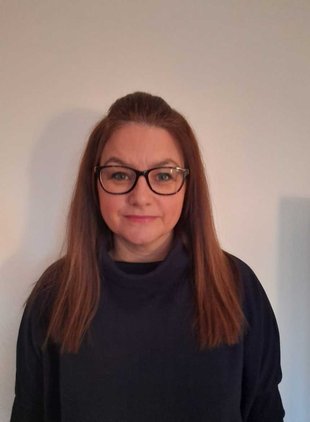Dr Fiona Errington-Mais

Lecturer in Immunology and Head of the Cancer Immunotherapy Group
Meet Dr Errington-Mais...
What inspired you to get involved with research?
Throughout my undergraduate degree I was lucky enough to work in an excellent research environment on a translation cancer research project. It was during this time I published my very first research article and discovered a passion for laboratory-based research. Since then, translational cancer research has remained my primary focus because of its potential to impact the lives of cancer patients, through the discovery and development of well-tolerated efficacious treatments. It is this that inspires me to continue to drive my research forward.
What projects are you working on that are funded by Ovarian Cancer Action?
Ovarian Cancer Action currently fund an immunotherapy-based project entitled “Next generation oncolytic viruses for the immunotherapy of ovarian cancer”. We are excited about this project as it will allow us to gain a better understanding of the challenges that exist in ovarian cancer and then use this information to develop a novel immunotherapy tool.
What is your favourite bit of lab equipment?
This is a difficult question to answer as I should say something clever like a piece of flow cytometry equipment, a piece of kit that is essential for all of our research projects. However, it is actually a very simple plate washer which allows us to wash all wells of a 96-well plate in one go. This is my favourite piece of equipment because we used to wash these plates manually using a multichannel pipette which took ages and limited the numbers of samples we could run at any one time.
What is the most rewarding part of your job?
There are many aspects of my job that are rewarding, from the supervision and training of students to influence the next generation of scientist, to the publication of scientific papers in high-impact journals to educate peers and inform the future development clinical agents. However, active research, such as testing and proving a hypothesis or coming up with a new thought/idea to test in the laboratory remains the most rewarding aspect of my job.
What is the most challenging part of your job?
This is an easy question to answer for me. Obtaining funding to keep research momentum is certainly the most challenging aspect of my job. Research is expensive and successful grants need a significant amount of preliminary data to be competitive. Therefore, at times it seems like a catch 22 situation, you need money to generate preliminary data but without preliminary data you struggle to get money. Therefore, charities such as OCA are essential for the continuation of research and to provide hope for cancer patients and their families.
All year round our scientists at the Ovarian Cancer Research Centre, The University of Oxford and beyond are working to find the next breakthrough in ovarian cancer research. Your donation will support the work they do each and every day.